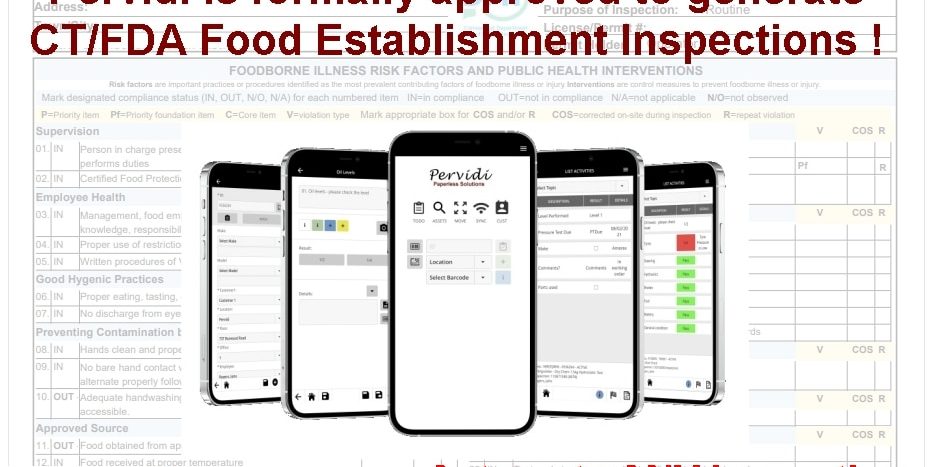FDA Food Establishment Inspections
The FDA (Food and Drug Administration) requires that food establishment inspections are regularily conducted to ensure compliance with regulations and to protect public health. In Connecticut (CT), these inspections are carried out by local health districts.
Here’s an overview of the FDA food establishment inspections process in CT:
1. Inspection Scheduling: Inspections are typically scheduled based on facility type, risk-based assessments, and other factors. Higher-risk establishments, such as those with a history of non-compliance or those involved in high-risk food handling, are often inspected more frequently.
2. Food establishments should ensure that they are familiar with and compliant with applicable regulations, including the FDA Food Code. They should review their food safety plans, employee training records, and documentation related to the establishment’s operations and procedures.
3. On-Site Inspection: During the inspection, an inspector visits the food establishment to assess compliance with food safety regulations. Inspectors evaluate various aspects, including food handling practices, employee hygiene, sanitation, equipment maintenance, pest control, and general cleanliness. They may also review records and documentation related to food safety.
4. Observations and Findings: Throughout the inspection, the inspector uses FDA checklists which include specific standardized criteria. Observations and findings related to compliance or non-compliance with food safety regulations are documented using the FDA forms. They may provide recommendations for corrective actions and improvement.
5. Inspectors often provide education and guidance to food establishment operators and employees during the inspection. They may offer suggestions on best practices for food safety and answer questions from the establishment’s staff.
6. Inspection Report: After the inspection, the inspector prepares an inspection report that summarizes the findings. The standard report includes observations, any violations or deficiencies found, and recommendations for corrective actions. The report is shared with the food establishment’s management.
7. Follow-Up and Compliance: If violations or deficiencies are identified during the inspection, the food establishment is expected to take appropriate corrective actions promptly. Inspectors may conduct follow-up inspections to ensure that necessary improvements have been made.
It’s important for food establishments in Connecticut to maintain ongoing compliance with food safety regulations and to address any identified issues promptly. By doing so, they can ensure the safety and quality of the food they provide to consumers and maintain regulatory compliance.







